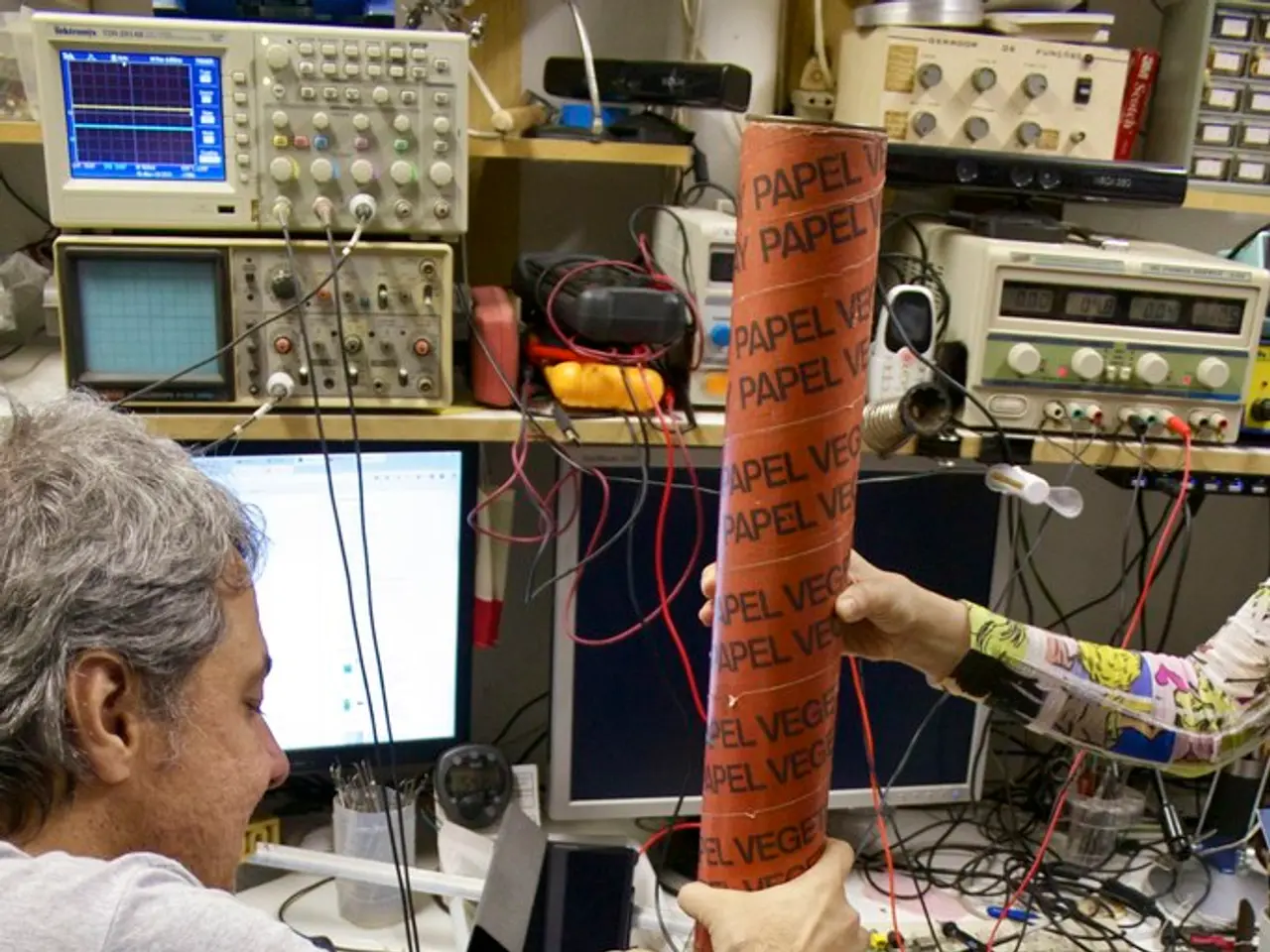Modified Open-Source Tool Engineered for Accuracy: Detailed Accurate Mechanism of the Open Sourced Device
In the world of innovative human-machine interfaces, the Ploopy Knob, a new control device introduced by open-source hardware company Ploopy, is making waves. This compact device, roughly the size of a large wristwatch, offers a unique solution for precision control and user interaction, surpassing conventional keyboards and mice.
At its core, the Ploopy Knob houses an RP2040 chip, with a custom PCB designed to accommodate its 4096 distinct positions for highly accurate control. This low-profile design, while unassuming at first glance, is powered by a USB-C connection and features a 6705ZZ bearing for a smooth rotation.
The Ploopy Knob's standout feature is the AS5600 magnetic encoder, which can sense rotations as fine as 0.088 degrees. This level of precision is not commonly found in conventional input devices, making the Ploopy Knob a valuable tool for a variety of applications, from audio mixing to CAD controllers and gaming peripherals.
Ploopy, a company known for its unique human-machine interface designs, has also developed Ploopy Trackballs, offering alternative input methods with custom designs. Like the knob, these trackballs are open-source, allowing users to modify and build their own versions with detailed guides and firmware based on RP2040 chips and QMK firmware for easy customization.
The custom mechanical keyboard community is another source of innovation, frequently experimenting with unique layouts, switches, and integration of other input modalities. These keyboards often serve as platforms for experimenting with different kinds of input devices and ergonomic designs beyond standard setups.
Magnetic encoder-based controls, similar to the Ploopy Knob, provide extreme precision and durability, often found in bespoke control interfaces. Other open-source projects and devices employing similar magnetic or optical encoders offer a new level of customization and user interaction.
Beyond Ploopy, the open-source hardware ecosystem includes various interfaces such as custom dials, sliders, touchpads, and multi-functional input devices that can be tailored to specific workflows. Platforms like QMK and RP2040 microcontrollers facilitate this customization.
Exploring Ploopy's GitHub repositories reveals many such interfaces, including trackballs and other custom input devices that push the boundaries of how humans interact with machines. For those seeking more examples beyond Ploopy's ecosystem, exploring communities like custom mechanical keyboards, open-source hardware forums, and Hackaday's coverage of DIY input devices is recommended for discovering cutting-edge human-machine interfaces.
The Ploopy Knob, with its precision, open-source nature, and user-centric design philosophy, stands out as a significant contribution to the world of human-machine interfaces. Its GitHub page offers 3D-printed case files, RP2040 firmware, and assembly and programming guides, empowering users to modify and build their own versions of the Ploopy Knob.
- The Ploopy Knob's precision and unique features, such as the AS5600 magnetic encoder and custom PCB, make it a valuable tool not only for controlling audio mixing or CAD controllers but also for programming purposes, as the RP2040 chip and QMK firmware allow for easy customization.
- The Ploopy Knob's success in the world of human-machine interfaces opens the door for various technology applications, including data-and-cloud-computing tasks that require high precision and interaction, as it can be modified and built by users themselves, thanks to its open-source nature.
- In the realm of gadgets and technology, the Ploopy Knob and other open-source interfaces like custom dials, sliders, touchpads, and multi-functional input devices are transforming how humans interact with machines, allowing for more personalization, customization, and user-centric design, as demonstrated by the vibrant custom mechanical keyboard community.







